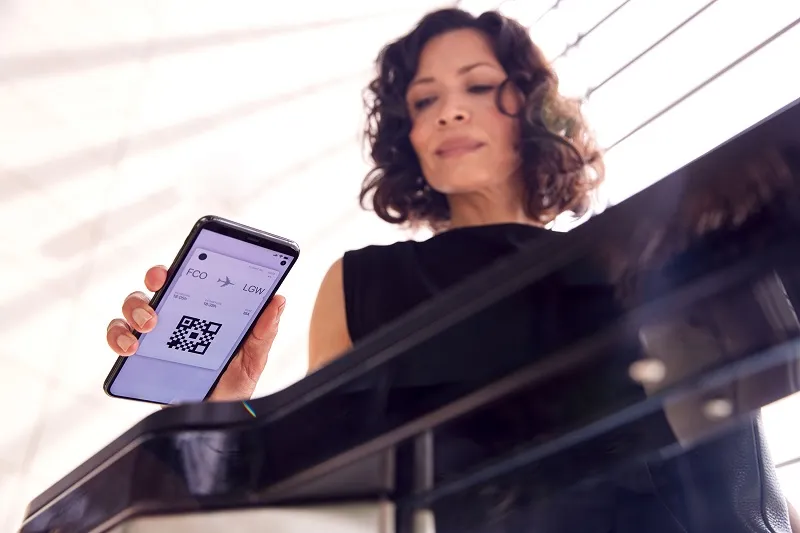
Expect health passes and biometrics as international travel resumes
Jan 06, 2021

As international travel resumes, the adoption of health passes and biometric technologies is becoming increasingly prominent. These tools aim to streamline the travel process while ensuring safety amid ongoing health concerns. Health passes, often linked to vaccination status or recent testing results, provide a digital means for travelers to verify their health credentials. Meanwhile, biometric systems, such as facial recognition and fingerprint scanning, enhance security and expedite check-in and boarding procedures. Together, these innovations promise to create a more efficient and secure travel experience, fostering confidence among travelers in a post-pandemic world.
As international travel resumes, the landscape of airport security and health protocols is evolving rapidly. Among the most significant changes are the increased use of health passes and biometric technology. These advancements aim to streamline the travel experience while ensuring the safety and health of travelers worldwide.
The Rise of Health Passes
Health passes are digital certificates that indicate a traveler's health status, such as vaccination records or negative COVID-19 test results. Countries and airlines are increasingly adopting these passes to facilitate smoother border crossings and enhance passenger confidence. Here are some key points regarding health passes:
| Aspect | Details |
|---|---|
| Types | Vaccination certificates, test results, immunity passports |
| Formats | Digital apps, paper documents, QR codes |
| Countries Using Health Passes | European Union, United States, Canada, Australia |
The "European Union" has introduced the EU Digital COVID Certificate, which allows travelers to prove their vaccination status or recent negative test results. Similarly, other regions have implemented their versions of health passes to ensure a uniform travel experience.
Benefits of Health Passes
The integration of health passes into international travel comes with several benefits:
- "Streamlined Check-In": Health passes can significantly reduce the time spent at check-in and border control, allowing for a more efficient travel experience.
- "Enhanced Safety": By ensuring that only travelers meeting health requirements are allowed to board flights, health passes help mitigate the risk of virus transmission during travel.
- "Increased Confidence": Knowing that health measures are in place can boost travelers' confidence, encouraging more people to resume their travel plans.
Biometric Technology in Airports
Alongside health passes, biometric technology is becoming increasingly prevalent in airports. This technology, which includes facial recognition, fingerprint scanning, and iris recognition, is designed to enhance security while providing a seamless travel experience.
| Biometric Technology | Advantages |
|---|---|
| Facial Recognition | Quick identification and reduced wait times |
| Fingerprint Scanning | High accuracy in identity verification |
| Iris Recognition | Enhanced security and low false acceptance rates |
Airports like "Dubai International" and "Singapore Changi" are pioneers in implementing biometric solutions, allowing passengers to move more quickly through security and boarding processes. This technology aligns with the need for faster travel experiences in a post-pandemic world.
Challenges Ahead
While the implementation of health passes and biometric technology offers numerous advantages, several challenges remain:
- "Privacy Concerns": The collection and storage of personal health and biometric data raise significant privacy issues, necessitating robust data protection measures.
- "Technological Barriers": Not all travelers are familiar or comfortable with using digital health passes or biometric systems, which can create disparities in travel experiences.
- "Regulatory Variations": Different countries have varying regulations regarding health passes and biometric data, making it difficult to establish a standardized approach to international travel.
The Future of Travel
As we look ahead, the integration of health passes and biometrics is likely to become the norm rather than the exception. With the push for a more secure and efficient travel experience, these innovations are set to reshape the future of international travel.
Airlines and airports will need to collaborate with governments and health organizations to ensure that the systems in place are effective and user-friendly. Ongoing education and outreach will be essential to help travelers adapt to these new technologies.
Conclusion
In conclusion, the resurgence of international travel is closely tied to the adoption of "health passes" and "biometric technology". By embracing these advancements, the travel industry can enhance safety, efficiency, and traveler confidence. As we navigate this new era, staying informed about the latest developments will be crucial for travelers looking to explore the world once again.
With a proactive approach to implementing these technologies, the industry can pave the way for a safer and more enjoyable travel experience in the years to come.
Related Articles

Explore Thailand: The Best Islands to Visit for Paradise, Adventure, and Relaxation

The Ultimate Guide to the Best Islands in Thailand for Your Next Getaway

Do babies need passports? How to get a passport for a newborn

How to get a U.S. passport fast: here’s how to expedite the process

What is Mobile Passport Control: 5 reasons why you should use it

SENTRI vs. Global Entry: A detailed guide

Do you need a passport to go to the Bahamas? Let’s find out

Do you need a passport to go to Mexico? A detailed guide

Do you need a passport to go to Canada? We got the answer

Do You Need a Passport for a Cruise: An Essential Travel Guide

Booster Seat Requirements: All the Rules to Follow in Your Rental Car

What Are the World’s Most Powerful Passports, and How Does Yours Rank?

How to Take a Passport Photo at Home: A Helpful Guide

You've got to have heart! Southwest's new livery

Your opinion: Should water be free on low cost carriers?

Young women bolder than guys as solo travellers
